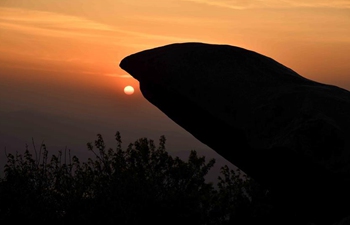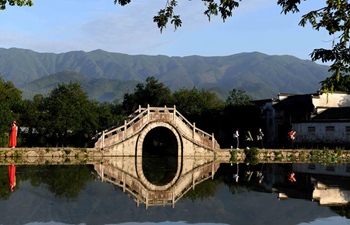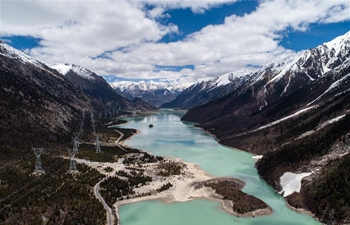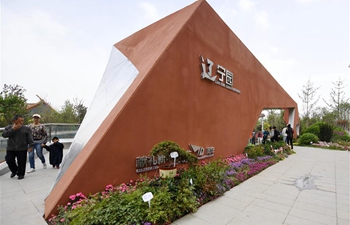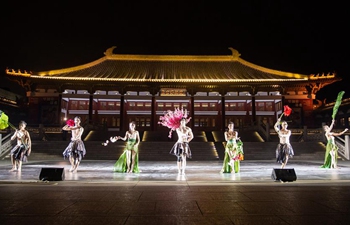CHENGDU, May 22 (Xinhua) -- Tang Zuo and Tan Yingchun trudge miles in mountains rising 2,000 to 5,000 meters above sea level, up to 200 days a year, collecting faeces of wild animals and installing infrared cameras, while leaving almost no human traces that might disturb the wildlife.
Both researchers at the Wolong National Nature Reserve in southwest China's Sichuan Province, Tang, 38, and Tan, 51, regard themselves as the "invisible men" in both the wild and the society.
To many, they are the lucky ones who can hug China's unofficial national mascot, giant pandas, and wander about to enjoy the beauty of nature. Some media even ask them to chase after the wild pandas in order to get the most eye-catching photos for the next day's newspapers.
But the reality is the other way round.
"We need to monitor the natural behaviors and living environment of wild animals, so we must make as little noise as possible in the wild," Tan said.
"It's our greatest wish to come across the wild animals, but, if it ever happens, we will not disturb them, just quietly observe."
LAST STALWARTS
In the primeval jungles, the researchers' raincoats are often cut by thorns. Carrying more than 15 kg of necessities and infrared cameras, the researchers have to wade through waist-deep rushing waters more than ten times a day. The freezing rivers left them haunting illness including rheumatism and asthma.
Due to the complex local landscape, they have to climb several lofty mountains in a day, find their way along the cliffs, and sometimes get lost and trapped in landslides.
Every two or three weeks, Tang gets the chance to go back home downtown, but he feels estranged. "Now I don't even walk in the crowds, and just walk along the roadsides by myself."
As tourism booms in the surrounding villages, the locals have become less willing to be their guides in the towering mountains. The meagre salary, gruelling field work, and long separation from the outside world fail to attract young people, making Tang and Tan among the last stalwarts.
However, Tan still remembers what his teacher told him when he took the college entrance exam in the 1980s. "The world of the future is a world of biology," he said.
"When you see the plants and flowers in the primeval forests on the mountains, completely different from those in the tourist attractions, you just feel different," said Tan.
"Smelling the freshness of the soil, you will be lighted up and desire to keep on going, so as to see more and better things in store."
DEFENDER OF NATURE
Not only are they plagued by the reality of no successor in the protection stations, but also the rampant uninvited hikers and the mounting rubbish they left in the mountains.
"Especially in Dengshenggou, two steps down the road is the virgin forest, so plenty of tourists want to go there, and advertisements for hiking are all over the place," said Duan Zhaogang, Party secretary of the reserve administration.
"Though there are signs prohibiting tourists from entering the area, the travel agencies still organize hiking trips and some even climb over the locked gates," Duan said.
In 2017, three tourists sneaked into the mountains in Wolong and got trapped on the cliffs. It was the researchers of the reserve's protection stations who carried them down the mountain because the tourists were suffering from severe altitude sickness.
Nearly 40 people participated in the rescue, and the cost including medical expense totaled more than 60,000 yuan (about 8,902 U.S. dollars).
Each tourist was fined about 5,000 yuan, which was the only time the stations punished the uninvited visitors to the mountains.
"Living in peace with nature is not to get in touch with the wildlife. Rather, we should keep a distance from them," said Duan.
Though setting up pulleys between the valleys would facilitate the researchers to cross the river quickly and safely, Tan, who is also head of the Sanjiang protection station, insists not to install any.
"We hope there's no road at all in the mountains so that tourists and poachers won't find it possible to get into the forests," Tan said.







